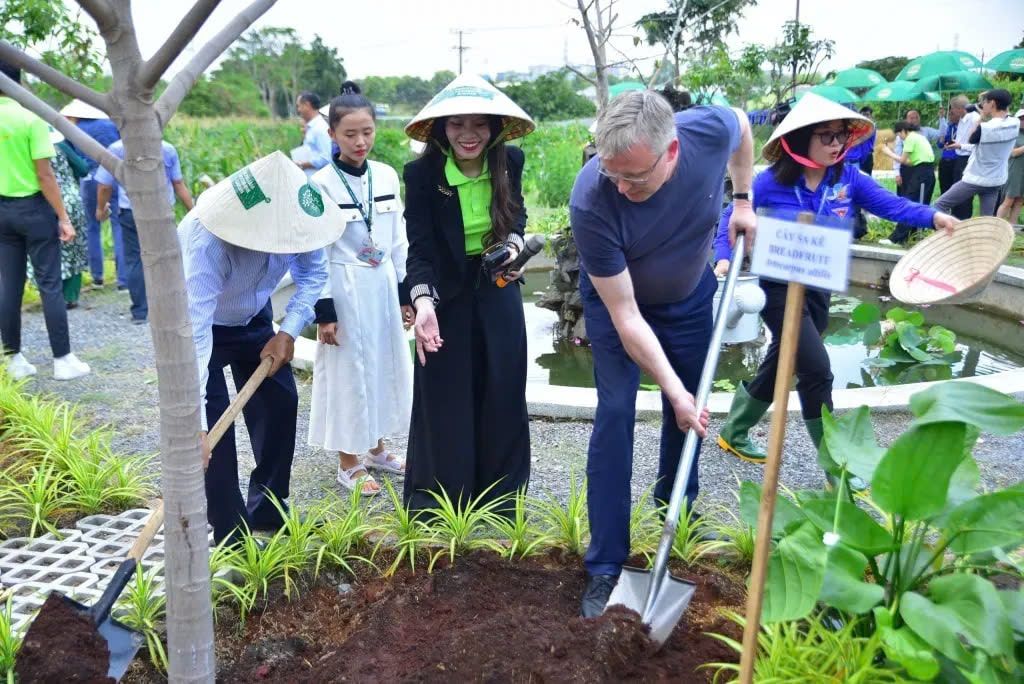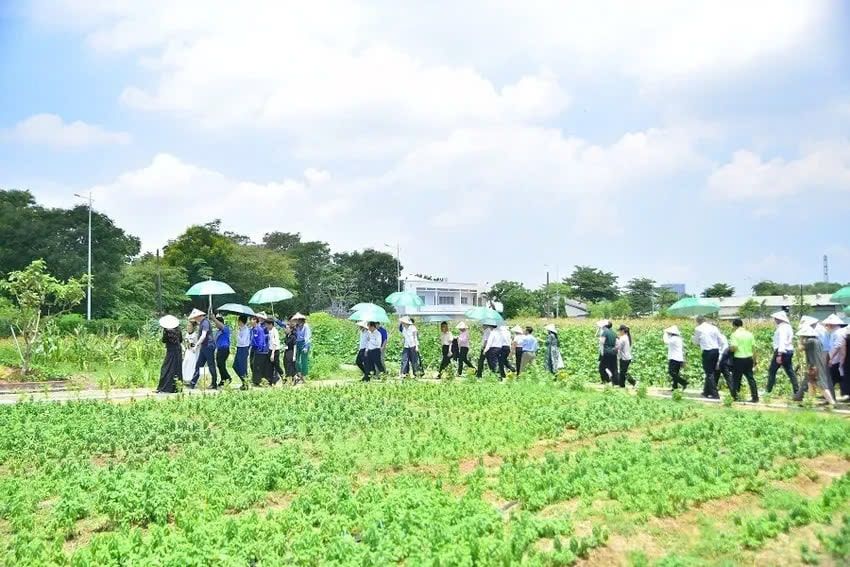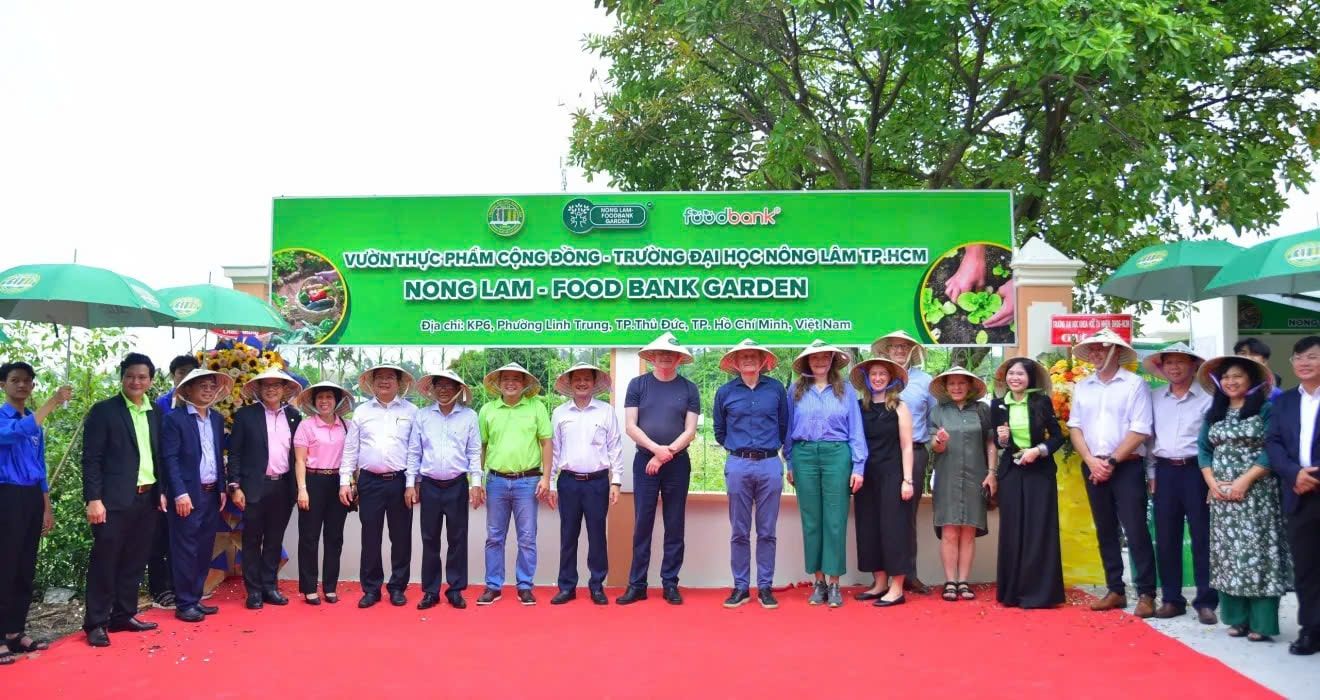The Community Foodbank Garden is one of the prominent models for green transition globally and in Vietnam.
Food Bank Vietnam recently collaborated with Nong Lam University, Ho Chi Minh City, to sign a cooperation agreement for the “Program for Green and Sustainable Agricultural and Food Development” and inaugurated the Community Foodbank Garden at Nong Lam University (Nong Lam – Food Bank Garden).
H.E. Mr. Jacob Jensen, the Danish Minister of Food, Agriculture, and Fisheries, led a high-level delegation including representatives from the Danish Veterinary and Food Administration to attend the event.

In the opening speech, Associate Professor Dr. Nguyen Tat Toan, President of Nong Lam University, HCMC, shared that the collaboration with Food Bank Vietnam not only contributes to improving the quality of life but also reflects the social responsibility of the university and other educational institutions nationwide.
Furthermore, the program aims to introduce cultivation models that promote diverse crops, enhance nutritional variety, and ensure sufficient food supply for emergency needs. The university uses its available water, land, and energy resources as an ecosystem to minimize waste and protect the environment. Additionally, training classes and practical experiences will help students and other participants transition from traditional agriculture to sustainable organic farming.
The program creates a network to develop a short supply and transportation system between the Food Garden and users to reduce transportation costs and maintain the value of produced goods. It also promotes collaboration among stakeholders such as students, farmers, businesses, and government agencies to establish a sustainable food development environment in the future.
Associate Professor Dr. Nguyễn Tất Toàn
On this occasion, Nong Lam University, HCMC, and its partners inaugurated the Community Foodbank Garden. This non-profit project supports and provides production processes, organic waste treatment, care, harvesting, and transportation to those in need.
This model aims to provide clean and nutritious food to users, ensuring access to high-quality food and reducing the risk of exposure to harmful chemicals. Additionally, it helps improve air quality, reduce CO2 emissions within the sustainable food system, and contribute to reducing over 30 million kg of CO2 emissions.

Mr. Nguyen Tuan Khoi, Chairman of Food Bank Vietnam, shared that Food Bank Vietnam has been implementing and developing the Community Foodbank Garden models for many years, focusing on sustainable development and food balance in Vietnam.
The program has collaborated with major coffee chains in Ho Chi Minh City to collect tea and coffee grounds and organic food waste to provide nutrition for plants and livestock.
The Community Foodbank Garden model is one of the prominent green transition models globally and in Vietnam. We have founded and developed this model with a focus on green development and sustainable green transition within the food system.
Mr. Nguyen Tuan Khoi informed.
During the program, two parties signed a cooperation agreement covering five main components in green and sustainable agricultural and food development activities.
These components include research and development of green and sustainable agriculture, cooperation in education and training to promote sustainable green initiatives, a network for sustainable agricultural and food development, incubation of green agricultural products, and green models within schools – community green gardens.
According to HCMC Law Newspaper.

